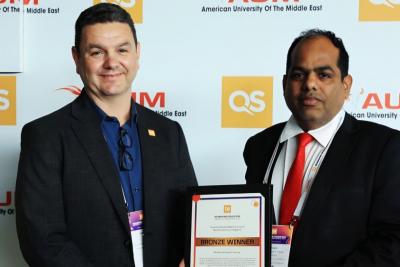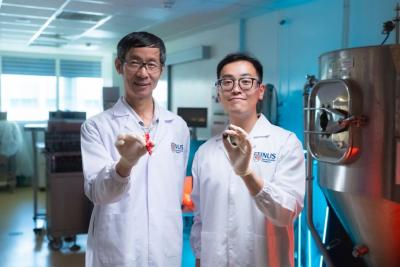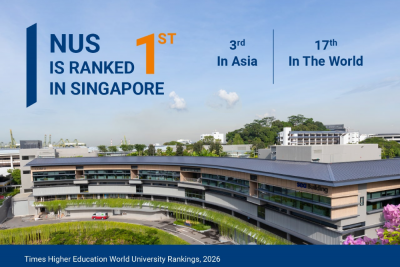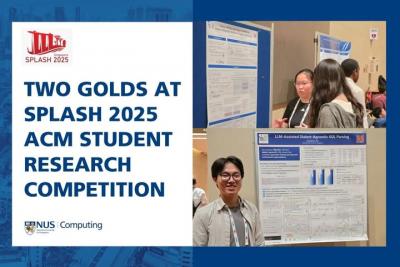Nghiên cứu mới của NUS hé lộ thông tin mới về di căn ung thư
Scientists discovered that ‘mechanoresilient’ cancer cells – those that can withstand significant mechanical stress – are more proliferative and drug resistant.

Prof Lim Chwee Teck showing an image of a ‘mechano-resilient’ cancer cell undergoing extensive deformation as the cell is squeezed through a narrow channel.
The ability of cancer cells to metastasise, or spread from one part of the body to another, is one of the reasons why cancer can be extremely challenging to treat. However, the process that drives metastasis is complex and not fully understood. In a recent study, scientists from the National University of Singapore (NUS) pulled back the curtains on the complex interactions between tumour cells and the microenvironment, and showed that some cancer cells are resilient to mechanical stress and such cells also have a stronger ability to multiply rapidly to form secondary tumours.
“Understanding how some cancer cells can survive mechanically-induced cell death is key to preventing the spread of malignant tumours, and paves the way for more targeted therapies,” explained lead author of the research Professor Lim Chwee Teck, who is Director of the NUS Institute for Health Innovation and Technology and holds an appointment at the Department of Biomedical Engineering under the NUS College of Design and Engineering.
Prof Lim and his team reported these groundbreaking findings, a culmination of four years of research work, in the scientific journal Advanced Science on 23 May 2023.
See more here
Nếu việc nghiên cứu những lĩnh vực công nghệ cao tại một trong những viện đại học hàng đầu thế giới là điều bạn mơ ước, hãy đăng ký tham dự những buổi gặp gỡ với Cô Pauline Tan, Phó Giám Đốc Ban tuyển sinh NUS, để được trực tiếp thông tin tuyển sinh Học bổng & Trợ giúp tài chính hơn 30 ngành cử nhân NUS 2024 dành cho ứng viên VN.
- TP.HCM - Buổi 1 : 17g30 chiều thứ Bảy, ngày 30/9/2023 tại VP Hợp Điểm, 192 Lý Thái Tổ, P.1, Quận 3
- TP.HCM - Buổi 2 : 8g30 sáng Chủ Nhật, ngày 1/10/2023 tại KS Rex, 141 Nguyễn Huệ, Q.1
Đăng ký tham dự tại đây
Xem thông tin chi tiết tại đây





















